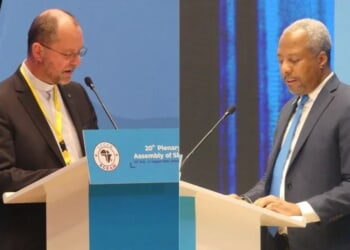Violence Increases When Dialogue Ceases
The tragic assassination of Charlie Kirk is not only the loss of a cultural leader, but also a chilling reminder of what happens when we confuse speech with violence. Kirk was a tireless champion of free expression, and his death underscores the urgent need to examine how the suppression of dialogue can set the stage for real violence.
In his own words, Kirk once warned: “When people stop talking, really bad stuff starts… when you stop having a human connection with someone you disagree with, it becomes a lot easier to want to commit violence against that group. What we as a culture have to get back to is being able to have reasonable disagreement where violence is not an option.” His words now read as both a prophecy and a plea for the culture of dialogue we so desperately need.
Suppressing Speech Is Not The Answer
Psychology teaches us that suppressing thoughts doesn’t eliminate them — it simply pushes them underground. Clinicians see this dynamic in individuals who repress emotions until they reemerge as passive aggression or even have destructive outbursts. The same pattern plays out in society: When people are told their perspectives are unspeakable, frustration grows, mistrust deepens, and the risk of acting out increases. Ironically, attempts to enforce “safe spaces” by silencing dissent often make communities more volatile. True safety comes from open dialogue, where conflict can be addressed directly rather than festering in silence.
The Danger Of “Social Justice Warrior” Rhetoric
When individuals adopt the mindset of “social justice warriors,” the very word “war” can take on a literal dimension. Combined with rhetoric that labels opponents as “Nazis,” “fascists,” or even as “threats to existence” for questioning prevailing ideologies, we create a psychological framework where violence feels like moral self-defense. Social psychologists call this groupthink — a process in which consensus becomes so rigid that dissenters can be irrationally cast as evil. Ingredients of groupthink include a belief in the moral superiority of the group, direct pressure on dissenters, strong outgroup stereotypes, and collective rationalization — all of which were present here. In such an atmosphere, attacking a speaker can feel like a righteous duty. Tragically, Kirk’s willingness to question aspects of trans ideology and other sacred cows of certain political groups placed him squarely in the crosshairs of this warped moral reasoning.
Words Are Not Violence
Words can sting, but they are not the same as physical harm. Equating speech with violence not only inflates anxiety but also undermines resilience. It conditions people to believe that discomfort is intolerable and that retaliation — even violent retaliation—is justified. By contrast, protecting free speech fosters self-efficacy — the belief in one’s ability to navigate challenges constructively. It strengthens authentic connection, reduces the loneliness that comes from self-censorship, and creates opportunities for genuine problem-solving.
Charlie Kirk’s assassination must be seen for what it is: a catastrophic failure to uphold the principle that dialogue is the antidote to violence, not its cause. As Kirk himself urged, the future of our culture depends on whether we can “have reasonable disagreement where violence is not an option.”
To honor his legacy, we must recommit to that vision — resisting the falsehood that words are violence — and embracing the truth that dialogue, even when difficult, is the path to peace. This is the very theme I explore in my book Can I Say That? Why Free Speech Matters and How to Use It Fearlessly, which offers psychological tools for protecting free speech and building the resilience that open dialogue requires. The book includes examples such as Andy Ngo and Riley Gaines, who have suffered violence for their speech — and tragically, Charlie Kirk is now added to that list in the worst possible way. I urge you to channel your grief into action — do not be silenced but use your voice and stand together. It’s exactly what Charlie would have wanted.
Dr. Chloe Carmichael is a clinical psychologist, USA Today bestselling author of “Nervous Energy,” and a visiting fellow at Independent Women. Her upcoming book “Can I Say That? Why Free Speech Matters and How to Use It Fearlessly” (Skyhorse, Nov. 2025) explores the mental health benefits of open dialogue and the costs of self-censorship.
The views and opinions expressed in this commentary are those of the author and do not reflect the official position of the Daily Caller News Foundation.
(Featured Image Media Credit: Screenshot/Fox News)
All republished articles must include our logo, our reporter’s byline and their DCNF affiliation. For any questions about our guidelines or partnering with us, please contact [email protected].
DONATE TO BIZPAC REVIEW
Please help us! If you are fed up with letting radical big tech execs, phony fact-checkers, tyrannical liberals and a lying mainstream media have unprecedented power over your news please consider making a donation to BPR to help us fight them. Now is the time. Truth has never been more critical!
Success! Thank you for donating. Please share BPR content to help combat the lies.
We have no tolerance for comments containing violence, racism, profanity, vulgarity, doxing, or discourteous behavior. Thank you for partnering with us to maintain fruitful conversation.





![Gavin Newsom Threatens to 'Punch These Sons of B*thces in the Mouth' [WATCH]](https://www.right2024.com/wp-content/uploads/2025/08/Gavin-Newsom-Threatens-to-Punch-These-Sons-of-Bthces-in-350x250.jpg)
![ICE Arrests Illegal Alien Influencer During Her Livestream in Los Angeles: ‘You Bet We Did’ [WATCH]](https://www.right2024.com/wp-content/uploads/2025/08/ICE-Arrests-Illegal-Alien-Influencer-During-Her-Livestream-in-Los-350x250.jpg)








